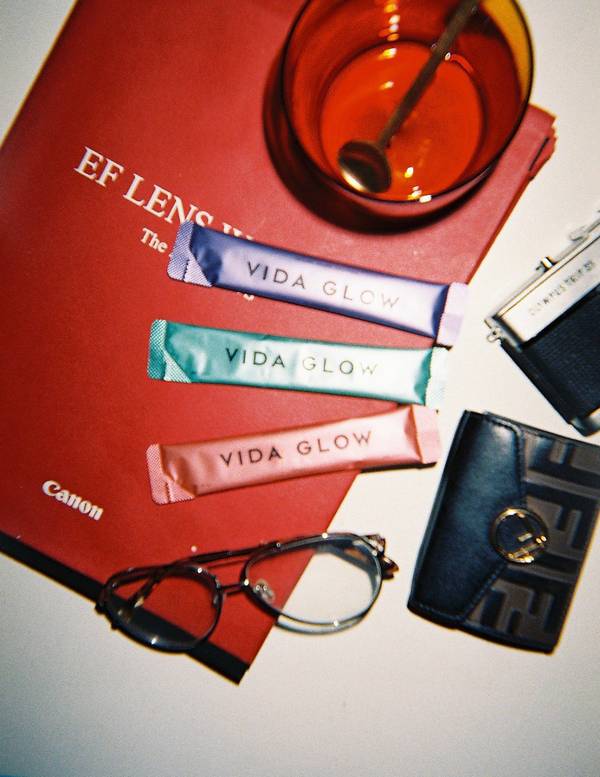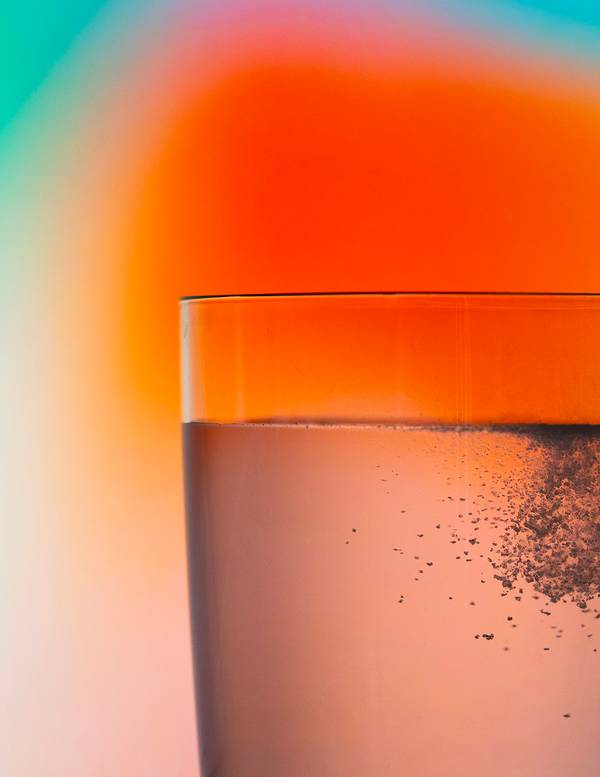10 Signs of Damaged Skin Barrier and How to Repair it

10 Signs of Damaged Skin Barrier and How to Repair it
The allure and instant gratification of exfoliating acids and retinols is having an unwanted impact on our skin – a damaged skin barrier.
The skin barrier, and how to repair it, is beauty’s latest obsession and it leads us to ask a very important question: How do I know if I’ve damaged my skin barrier? Keep reading to find out.
What is a skin barrier?
Your skin barrier is known as the protective shield of your complexion. Your skin is composed of several layers and your skin barrier is the outermost one. It is a delicate but vital layer that safeguards your skin from external aggressors and keeps the good things like hydration in (1). Acting as a defensive barrier against pollutants, bacteria, harsh weather conditions and products, your skin barrier fights off these irritants. Collagen is beneficial in protecting this barrier by supporting the dermis beneath the skin barrier. Taking collagen supplements for skin provides the nutrients to strengthen its barrier and accelerate skin repair, according to a recent study on collagen’s role in skin protection.
Damaged skin barrier causes
Your skin barrier can become damaged quite easily. When its damaged, it loses vital water that keeps your skin hydrated and healthy so instead your skin becomes dry and easily irritated. Environmental conditions like extreme weather or excessive exposure to UV radiation can disrupt its integrity. Other factors like hormonal imbalances caused by stress and a poor diet can also contribute but the main culprit is what we’re putting on our skin. Harsh physical exfoliants, and chemical exfoliants and active ingredients like glycolic acid, salicylic acid and retinols are among some of the most common skin barrier disruptors. When used in moderation and with restraint, these ingredients can deliver effective results for skin. When over-used, it could be bad news for your skin barrier.
When the skin barrier is damaged, it loses vital water that keeps your skin hydrated and healthy so instead your skin becomes dry and easily irritated. Common ways to counteract these effects include using a moisturising face cream to lock in hydration (3), and taking collagen supplements to restore hydration from within. Collagen supplements for dry skin deliver nutrients that strengthen your skin’s barrier and therefore support your skin recovery process (4).


A broken skin barrier: the 10 tell-tale signs
Dehydrated and dry skin
A damaged skin barrier usually results in increased moisture loss leading to dryness and flakiness. Your skin may look and feel scaly and itchy.
Redness and irritation
Inflammation and heightened sensitivity are common signs of a compromised skin barrier. You may notice even gentle cleansers and moisturisers burn your skin and it may appear red and blotchy.
Rough texture
A rough, uneven skin texture is a common indication of a weakened barrier that is unable to retain the moisture needed for a healthy complexion.
Itching, burning, or stinging sensations
When your skin barrier is unable to keep in the moisture it needs to feel calm and healthy, it’s likely that your skin will itch due the dryness and any product applied to the damaged skin may burn or sting.
Increased sensitivity
When the skin barrier is weakened, it becomes more reactive to external triggers, resulting in heightened sensitivity. Even gentle skincare products may upset your skin and result in a dry skin rash.
Acne breakouts
A damaged skin barrier struggles to retain moisture effectively and when your skin becomes dehydrated, an overproduction of sebum (natural oils) kick in. This excess oil and dry, dead skin cells block the pores and result in acne breakouts and pimples.
Excessive oiliness
In response to a damaged, dehydrated skin barrier, your sebaceous glands (which produce oil) may go into overdrive to compensate for the lack of moisture in the skin. Don’t be fooled by your greasy complexion – your skin is still dehydrated.
Taut or tight skin
A feeling of tightness is caused by the lack of moisture being retained in the skin. When your skin becomes dry, it tightens due to the skin inability to retain water.
Increased sun sensitivity
One of the main functions of your skin barrier is to protect your skin against external factors like UV. Once the barrier is damaged, its ability to do this becomes impaired and you can become more susceptible to sunburn and long-term skin damage. A broad-spectrum sunscreen should be applied every day, no matter what state your skin barrier is in.
Delayed wound healing
A slow healing process for cuts, scratches, or minor injuries may indicate an impaired skin barrier. For your skin barrier to effectively heal wounds it requires a healthy, hydrated environment. When your skin is damaged, it allows things like bacteria to penetrate the skin more easily and hinder the healing process.
How to repair your skin barrier
Thankfully, a damaged skin barrier can be reversed. In fact, healing your skin barrier after it’s been damaged is pretty simple provided you adhere to the following mantra: less is more.
Simplify your skincare routine
First, start with your skincare. Strip back your skincare regimen, it's likely you’re using too many products. While you may feel like stocking up on “damage repair” products, a stripped back, minimalist routine of gentle products is best. For at least two weeks, take a break from our active skincare (it’s only going to make the issue worse). Researchers recommend using hydrating, skin-nourishing ingredients like hyaluronic acid, ceramides and squalene, which are proven to improve skin barrier functions (5). Find a fragrance-free, gentle cleanser and moisturiser, pair this with sunscreen to protect your skin – this will allow your skin space to heal.
Once your skin has healed, the start to slowly reintroduce your active skincare, one product at a time.
Take regular collagen supplements
While a simplified topical routine will help with skin barrier repair, a recent study reveals that topical products only penetrate the top 3% of our skin. So it’s imperative when healing a damaged skin barrier that we feed the other 97% as well. A supplement like Natural Marine Collagen provides high amounts of amino acids and peptides clinically proven to rejuvenate healthy skin by working from the inside out (6). By supplementing, you can ensure that you’re hydrating your skin from within and providing it with essential ingredients to heal itself. Marine collagen is also known for its ability to address common skin concerns, including reducing dryness, improving skin elasticity and smoothing fine lines (6). Learn more about the benefits of marine collagen and find the best collagen types for your skin.
By implementing these changes and adopting a skincare routine tailored to restore and protect the skin barrier you can gradually repair your complexion. Remember, consistency is key and will reward you with a healthier, resilient, and radiant skin barrier.
A damaged skin barrier can manifest through various factors but once you identify the cause you can begin take the necessary steps to repair and strengthen your skin barrier. With the right skincare practices, lifestyle adjustments, and a focus on nurturing your skin, you can restore its natural protective shield and go back to enjoying a healthy, vibrant complexion once again.
Ready to see marine collagen’s effect in restoring damaged skin? Learn what is collagen and the best types of collagen to address your skin concerns.
Shop The Story
READ MORE COLLAGEN ARTICLES:
How Long Does it Take for Collagen to Work?
Sources
(1) Rosso JD, Zeichner J, Alexis A, Cohen D, Berson D. Understanding the Epidermal Barrier in Healthy and Compromised Skin: Clinically Relevant Information for the Dermatology Practitioner: Proceedings of an Expert Panel Roundtable Meeting. J Clin Aesthet Dermatol. 2016 Apr;9(4 Suppl 1):S2-S8. Epub 2016 Apr 1. PMID: 28936279; PMCID: PMC5608132.
(2) Kang, W., Son, B., Park, S., Choi, D., & Park, T. (2021). UV-Irradiation- and Inflammation-Induced Skin Barrier Dysfunction Is Associated with the Expression of Olfactory Receptor Genes in Human Keratinocytes. International Journal of Molecular Sciences, 22(6), 2799.
(3) Spada F, Barnes TM, Greive KA. Skin hydration is significantly increased by a cream formulated to mimic the skin's own natural moisturizing systems. Clin Cosmet Investig Dermatol. 2018 Oct 15;11:491-497. doi: 10.2147/CCID.S177697. PMID: 30410378; PMCID: PMC6197824.
(4) Wei Sun, Jian He, Yihan Zhang, Ruikun He, Xuguang Zhang, Comprehensive functional evaluation of a novel collagen for the skin protection in human fibroblasts and keratinocytes, Bioscience, Biotechnology, and Biochemistry, Volume 87, Issue 7, July 2023, Pages 724–735,
(5) Purnamawati S, Indrastuti N, Danarti R, Saefudin T. The Role of Moisturizers in Addressing Various Kinds of Dermatitis: A Review. Clin Med Res. 2017 Dec;15(3-4):75-87. doi: 10.3121/cmr.2017.1363. Epub 2017 Dec 11. PMID: 29229630; PMCID: PMC5849435.
(6) Evans M, Lewis ED, Zakaria N, Pelipyagina T, Guthrie N. A randomized, triple-blind, placebo-controlled, parallel study to evaluate the efficacy of a freshwater marine collagen on skin wrinkles and elasticity. J Cosmet Dermatol. 2020; 20: 825–834.




